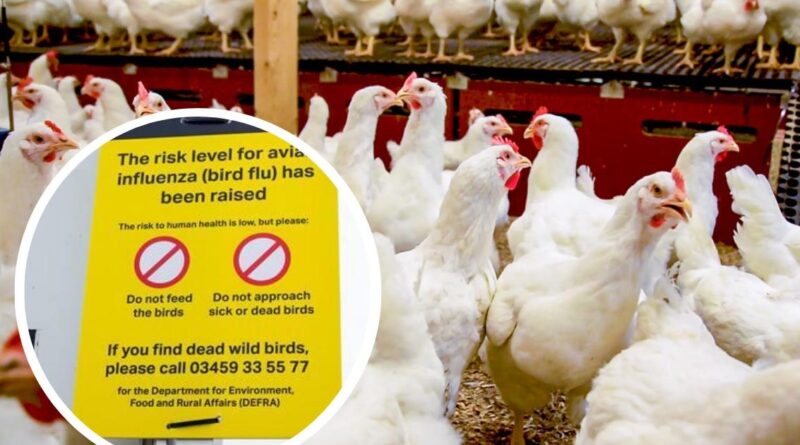Strict new rules for bird keepers in Bolton to reduce spread of virus

All bird keepers in the borough owning more than 50 birds, and those that sell or give away eggs or poultry products, must house their flocks.
The new housing rules has been introduced by DEFRA to reduce the risk of bird flu
In response to increased findings of bird flu in wild birds and new cases in poultry and kept birds, coupled with heightened risk levels, an Avian Influenza Prevention Zone (AIPZ) with mandatory housing has been introduced in parts of England to mitigate the risk of further outbreaks of the disease.
READ MORE: Bolton councillor’s concerns after dead Canada goose found
Bird flu-surviving gannets continue to breed but birth rate down, study finds
Warning for farmers after first case of bird flu discovered in a sheep
The new rule, which came into effect on 30 October 2025, applies to all bird keepers in the affected areas which includes Bolton.
An AIPZ also remains in force across the whole of Great Britain to mitigate the risk of outbreaks of the disease.
Measures include keeping feed and bedding inside, reporting of changes in egg production, mandatory record keeping, disinfecting footwear, and cleansing and disinfecting housing and concrete walkways on a continuous basis.
Lynn Donkin, Director of Public Health at Bolton Council, said:“The current risk of bird flu to the public is very low.
“It is important that all bird keepers adhere to the rules and maintain strict biosecurity on their premises to help keep their flocks safe.
“Please remain vigilant for any signs of disease and if you suspect an outbreak in your flock, please contact DEFRA immediately.”
More information is available at Animal health and welfare – Bolton Council.
Anyone who needs to register birds should contact trading.standards@bolton.gov.uk.
UK Chief Veterinary Officer Christine Middlemiss said: “Given the continued increase in the number of avian influenza cases in kept birds and wild birds across England, we are now taking the difficult step to extend the housing measures to the whole of England.
“I appreciate the impact these measures have on industry and am extremely grateful for the continued cooperation of the poultry sector. We know from previous years that housing birds will bring the rates of infection down from the high we are currently experiencing.
“I urge bird keepers to comply with the new housing measures, continue to exercise robust biosecurity measures, remain alert for any signs of disease and report suspected disease immediately to the Animal and Plant Health Agency.”
All bird keepers in England whether they have pet birds, commercial flocks or just a few birds in a backyard flock must:
Keep feed and bedding inside
Cleanse and disinfect clothing, footwear, equipment and vehicles before and after contact with poultry and captive birds– if practical, use disposable protective clothing
Reduce the movement of people, vehicles or equipment to and from areas where poultry and captive birds are kept, to minimise contamination from manure, slurry and other products
Carry out effective vermin control in any areas where poultry and captive birds are kept
Thoroughly cleanse and disinfect housing and concrete walkways on a continuous basis
Keep fresh disinfectant at the right concentration at all farm and poultry housing entry and exit points
Make premises unattractive to wild birds
(e.g. use bird scarers, foils or streamers)
Further information on the latest situation and guidance to help bird keepers comply with the new rules is available via gov.uk/birdflu,
The current risk to human health remains low and as standard, properly cooked poultry and poultry products, including eggs, are safe to eat.
Source – INDIA TV





